第61章 DEFINITIONS OF THE EMOTIONS(5)
^^^^^Explanation--Cowardice is, therefore, nothing else but the fear of some evil, which most men are wont not to fear; hence I do not reckon it among the emotions springing from desire. Nevertheless, I have chosen to explain it here, because, in so far as we look to the desire, it is truly opposed to the emotion of daring.
XLII. "Consternation" is attributed to one, whose desire of avoiding evil is checked by amazement at the evil which he fears.
^^^^^Explanation--Consternation is, therefore, a species of cowardice. But, inasmuch as consternation arises from a double fear, it may be more conveniently defined as a fear which keeps a man so bewildered and wavering, that he is not able to remove the evil. I say bewildered, in so far as we understand his desire of removing the evil to be constrained by his amazement. I say wavering, in so far as we understand the said desire to be constrained by the fear of another evil, which equally torments him: whence it comes to pass that he knows not, which he may avert of the two. On this subject, see III. xxxix. note, and III. lii. note. Concerning cowardice and daring, see III. li. note.
XLIII. "Courtesy," or "deference" (Humanitas seu modestia), is the desire of acting in a way that should please men, and refraining from that which should displease them.
XLIV. "Ambition" is the immoderate desire of power.
^^^^^Explanation--Ambition is the desire, whereby all the emotions (cf. III. xxvii. and xxxi.) are fostered and strengthened; therefore this emotion can with difficulty be overcome. For, so long as a man is bound by any desire, he is at the same time necessarily bound by this. "The best men," says Cicero, "are especially led by honour. Even philosophers, when they write a book contemning honour, sign their names thereto," and so on.
XLV. "Luxury" is excessive desire, or even love of living sumptuously.
XLVI. "Intemperance" is the excessive desire and love of drinking.
XLVII. "Avarice" is the excessive desire and love of riches.
XLVIII. "Lust" is desire and love in the matter of sexual intercourse.
^^^^^Explanation--Whether this desire be excessive or not, it is still called lust. These last five emotions (as I have shown in III. lvi.) have on contraries. For deference is a species of ambition. Cf. III. xxix. note.
Again, I have already pointed out, that temperance, sobriety, and chastity indicate rather a power than a passivity of the mind. It may, nevertheless, happen, that an avaricious, an ambitious, or a timid man may abstain from excess in eating, drinking, or sexual indulgence, yet avarice, ambition, and fear are not contraries to luxury, drunkenness, and debauchery.
For an avaricious man often is glad to gorge himself with food and drink at another man's expense. An ambitious man will restrain himself in nothing, so long as he thinks his indulgences are secret; and if he lives among drunkards and debauchees, he will, from the mere fact of being ambitious, be more prone to those vices. Lastly, a timid man does that which he would not. For though an avaricious man should, for the sake of avoiding death, cast his riches into the sea, he will none the less remain avaricious; so, also, if a lustful man is downcast, because he cannot follow his bent, he does not, on the ground of abstention, cease to be lustful. In fact, these emotions are not so much concerned with the actual feasting, drinking, &c., as with the appetite and love of such. Nothing, therefore, can be opposed to these emotions, but high-mindedness and valour, whereof I will speak presently.
The definitions of jealousy and other waverings of the mind I pass over in silence, first, because they arise from the compounding of the emotions already described; secondly, because many of them have no distinctive names, which shows that it is sufficient for practical purposes to have merely a general knowledge of them. However, it is established from the definitions of the emotions, which we have set forth, that they all spring from desire, pleasure, or pain, or, rather, that there is nothing besides these three; wherefore each is wont to be called by a variety of names in accordance with its various relations and extrinsic tokens.
If we now direct our attention to these primitive emotions, and to what has been said concerning the nature of the mind, we shall be able thus to define the emotions, in so far as they are referred to the mind only.